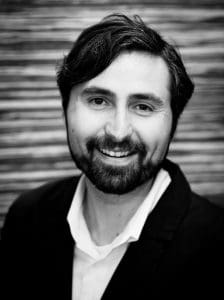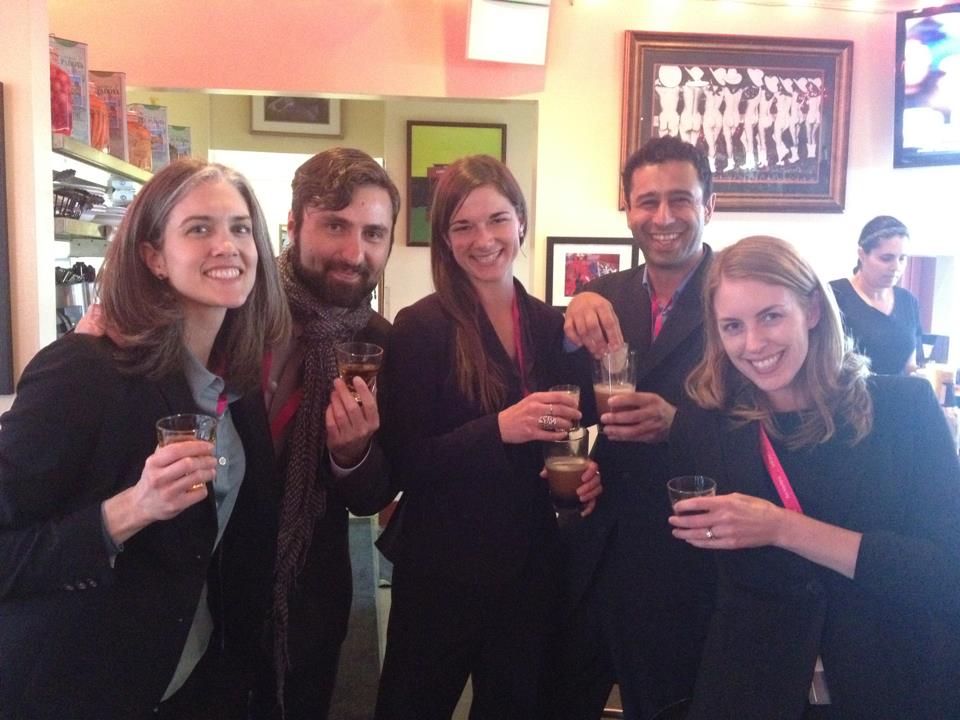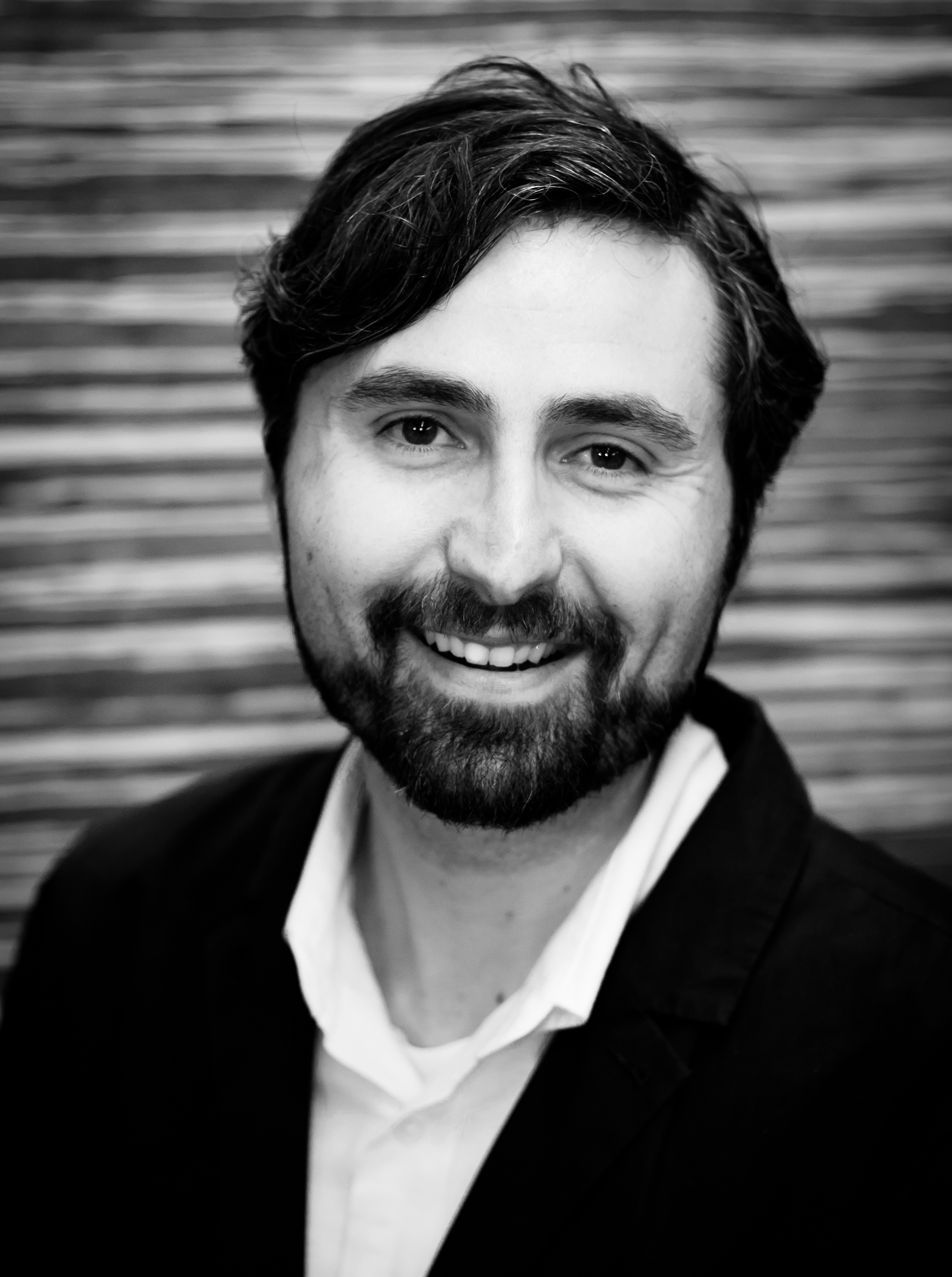
I met fellow classmate and solar connoisseur, David Stripling (C14), at a linen covered table at the Lone Palm in the Mission District of San Francisco. I intended to hear about David’s journey into renewable energy, assuming there would be some trajectory to his story, a thread to follow. But David’s career reads like more of a spiral than a straight line and seemed to surprise even himself.
“I studied dead languages in college,” David opened, with a straightforward, earnest air and the undertone of a smile. “I wanted to read Aristotle in Greek.”
Instead, connections and circumstance brought David to a farm after college, constructing straw bale buildings, a profession approved of by none other than Aristotle himself. This stint led him to more straw bale construction in Healdsburg, CA, where he learned the art of natural building, spending two years constructing Ridge Winery, at the time the largest straw bale building in the world.
David’s story then zigzags home to El Paso, TX where he started a nonprofit, trying to get the homeless access to social services. With Masters of Social Work applications filled out, but the timing not quite right, David instead joined the crew of a whale watching boat, sailing from Portland to Mexico. It was “a version of boot camp,” he reminisced, “with intense rotating sleep schedules.”
After enough time in the Pacific, David went to Portland where he became a carpenter, and then worked in construction management, developing townhouses. “I learned mainstream [construction] practices – and how to be in the belly of the beast.”
When the economy tanked in 2008, David knew that solar was on the rise. He landed a position as a project manager at Stellar Energy where he managed the company’s largest solar installation at Foster’s Winery Estates of Americas. After five years, David grew dissatisfied. Wanting more, he decided to pursue his MBA at PGS.
as a project manager at Stellar Energy where he managed the company’s largest solar installation at Foster’s Winery Estates of Americas. After five years, David grew dissatisfied. Wanting more, he decided to pursue his MBA at PGS.
Since being at PGS, one of David’s most pivotal experiences was being part of the team that was a top-five finalist in the Hult Prize social enterprise competition.
“The Presidio faculty kept showing up to support us,” he said, reflecting on the professors who offered their expertise and attended the competitions. “Through Presidio, we were completely supported in trying to solve the world’s most vexing problems. It was quite the adventure.”
Now, David is running finance service programs for residential solar installers at Soligent. He is quickly rising in the ranks, serving as Director of Corporate Development. Responsible for innovation and driving new areas of growth, his current path is an opportunity to spread solar in the United States and help the industry mature.
“If this is where I create the most good in the world and that’s what I’m proficient at, then I have to follow it,” he says of his quickly moving career.
Looking ahead, David sees potential for outright innovation in the solar industry. With 20 million roofs suitable for solar in the United States, and only 250,000 solar panels installed, the industry is staged for incredible growth. He sees the industry just scratching the surface of innovation with opportunities in efficiency and storage. David predicts that policy and the choice of consumers will determine the energy mix of the future.
“I’m not worried about people doing the right thing,” he says, “I’m worried about them doing the right thing fast enough.”
David is finishing up his last classes at the Presidio Graduate School and will graduate in May of 2014.

